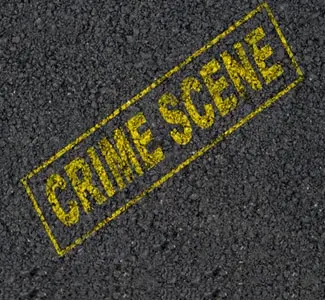CRIMINAL LAWYER FOR CRIMINAL HOMICIDE, MURDER, OR MANSLAUGHTER CHARGES
A person who is criminally charged with murder or criminal homicide faces
the harshest punishment associated with any crime in Pennsylvania.
Criminal Homicide In Pennsylvania
The charge of criminal homicide is defined in Pennsylvania criminal statute, 18 Pa.C.S. § 2501 which states: “A person is guilty of criminal homicide if he intentionally, knowingly, recklessly or negligently causes the death of another human being.” Criminal homicide includes both murder and manslaughter charges. What separates murder from manslaughter is determined by the state of mind of the person who is accused of having committed a killing.
Client Testimonials
MURDER – 18 PA.C.S. § 2502
In Pennsylvania, the law sets forth three different crimes of Murder. These are known as first degree murder, second degree murder, and third degree murder.
For first degree murder, the prosecutor must show that the defendant committed the killing with an intent to kill. In other words, the killing was premeditated and deliberate.
For second degree murder, the prosecution must show beyond a reasonable doubt that the defendant or an accomplice or a co-conspirator committed the killing while perpetrating an enumerated felony. In other words, the defendant or his accomplice killed someone while committing one of the following felony crimes: robbery, rape, involuntary deviate sexual intercourse by force or threat of force, arson, burglary, or kidnapping.
In third degree murder, the prosecution must show beyond a reasonable doubt that the defendant committed a killing with a willful disregard of an unjustified and extremely high risk that the conduct will result in death or serious bodily injury. The prosecutor must prove that the defendant showed an extreme indifference to the value of human life.
PENALTIES FOR MURDER CONVICTION
A conviction for First degree murder requires a mandatory sentence of life imprisonment without the possibility of parole. However, if the case has been authorized and prosecuted under Pennsylvania’s capital murder statute, the jury must decide between the sentence of death or life without parole.
A conviction for Second degree murder requires a mandatory sentence of life without parole.
A conviction for Third degree murder cannot be more than 40 years.
VOLUNTARY MANSLAUGHTER – 18 PA.C.S. § 2503
There are essentially two scenarios that fit the category of voluntary manslaughter rather than murder. The first category is commonly referred to as “heat of passion”. The Pennsylvania statute defies voluntary manslaughter involving heat of passion as: A person who kills an individual without lawful justification commits voluntary manslaughter if at the time of the killing he is acting under a sudden and intense passion resulting from serious provocation.
The second type of voluntary manslaughter occurs when a person commits a killing under the unreasonable belief that the killing was justifiable. This is commonly referred to as “imperfect self-defense.” In other words, the person believed that he was acting in self-defense, but that belief was unreasonable.
INVOLUNTARY MANSLAUGHTER – 18 PA.C.S. § 2504.
Involuntary manslaughter occurs when as a direct result of the doing of an unlawful act in a reckless or grossly negligent manner, or the doing of a lawful act in a reckless or grossly negligent manner, he causes the death of another person. An example of this is when an adult provides a minor with alcoholic beverages, then fails to prevent that intoxicated minor from driving a vehicle, and that minor has an accident that results in a death.
CAUSING OR AIDING SUICIDE – 18 PA.C.S.§ 2505.
A person may be convicted of criminal homicide for causing another to commit suicide only if the prosecution can show beyond a reasonable doubt that he intentionally causes such suicide by force, duress or deception.
DRUG DELIVERY RESULTING IN DEATH – 18 PA.C.S.§ 2505
A person may be convicted of drug delivery resulting in death, a felony of the first degree, if the person intentionally administers, dispenses, delivers, gives, prescribes, sells or distributes any controlled substance or counterfeit controlled substance in violation of the Controlled Substance, Drug, Device and Cosmetic Act, and another person dies as a result of using the substance. This crime is increasingly being charged in Pennsylvania. In 2017, prosecutors brought this charge far more than in the recent past; equaling a nearly 1,300 percent increase in only five years.
DEFENSES TO MURDER CHARGES
A skilled homicide lawyer must understand what tools to use to attack and dismantle the prosecution’s case. Beginning with a vigorous investigation of the allegations and pre-trial motions and objections to exclude improper evidence that would be prejudicial to a defendant, Daniel McGarrigle, knows how to develop and present a strong defense against murder charges. Defending against homicide charges is different than defending against other criminal charges. The McGarrigle Law Firm understands how to use technical defenses life justification, diminished capacity, voluntary intoxication, self-defense, and duress. The McGarrigle Law Firm also has extensive experience presenting perfect testimony to challenge and debunk scientific theories being argued by the prosecution. We recognize how much is at stake in homicide cases and are deeply committed to zealously representing our clients to get the best results.






